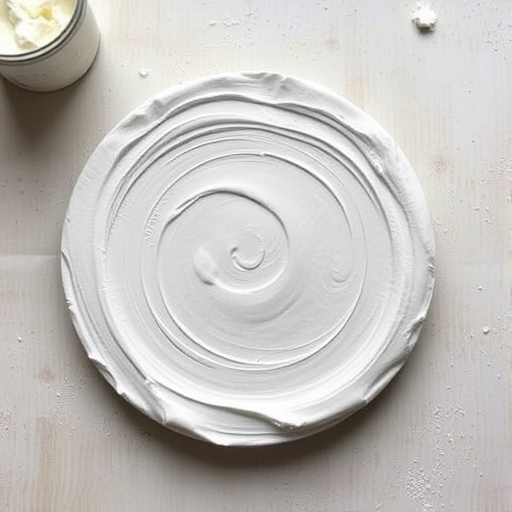Can You Paint Air Dry Clay Before It Dries?
Air dry clay is a versatile medium favored by artists, crafters, and hobbyists alike for its ease of use and accessibility. One common question that arises among users is whether you can paint air dry clay before it dries. This article will explore the implications of painting air dry clay at different stages of its drying process, the best practices for painting, and tips to achieve the best results.
Understanding Air Dry Clay
Before diving into painting techniques, it’s essential to understand what air dry clay is. Air dry clay is a type of modeling clay that hardens when exposed to air, eliminating the need for baking or firing in a kiln. It’s made from a combination of natural and synthetic materials, which gives it its pliable texture.
Characteristics of Air Dry Clay
- Non-Toxic: Safe for all ages, making it ideal for children’s crafts.
- Easy to Shape: Can be molded into intricate designs and shapes.
- Lightweight: Once dried, it is significantly lighter than traditional clay.
- Variety of Finishes: Available in different colors and textures.
- Blending Colors: If you’re working with multiple colors, painting while the clay is still wet allows for seamless blending.
- Creating Depth: You can create texture and depth in your artwork by layering paints before the clay dries.
- Easier Application: Wet clay can absorb paint more readily, allowing for a smoother application.
- Distortion Risk: Painting wet clay can disturb the shape and details of your project, leading to unwanted distortion.
- Longer Drying Time: Adding paint can increase the drying time of the clay, as the moisture from the paint needs to evaporate.
- Limited Finish Options: Some paint types may not adhere well to wet clay, resulting in a less durable finish.
- Acrylic Paint: The most popular choice due to its quick drying time and vibrant colors.
- Watercolors: Great for subtle effects, but may require sealing afterward.
- Tempera Paint: Non-toxic and easy to use, but may not be as durable.
- Spray Paint: Provides a smooth finish but should be used in well-ventilated areas.
Can You Paint Air Dry Clay Before It Dries?
The short answer is yes, you can paint air dry clay before it dries, but there are several factors to consider. Painting wet clay can yield different results compared to painting it once it has fully dried.
Pros and Cons of Painting Wet Air Dry Clay
Pros
Cons
Best Practices for Painting Air Dry Clay
To achieve the best results when painting air dry clay, follow these best practices:
1. Choose the Right Paint
Not all paints are suitable for air dry clay. Here are some recommended types:
2. Prepare the Surface
Before painting, ensure that the surface of your clay is smooth and free of dust. You can lightly sand the surface once the clay has dried to achieve a better painting surface.
3. Test First
Always conduct a test on a small piece of clay before applying paint to your main project. This helps to ensure compatibility and allows you to see how the colors will appear once dried.
4. Use Thin Layers
If painting wet clay, apply thin layers of paint to avoid overwhelming the clay with moisture. For dry clay, multiple thin layers can help achieve a more vibrant color without obscuring details.
5. Seal Your Work
After painting, consider sealing your project with a clear acrylic sealer to protect the paint and enhance durability. This is particularly important for items that will be handled frequently.
Comparison: Painting Wet vs. Dry Air Dry Clay
Here’s a simple comparison table highlighting the differences between painting wet and dry air dry clay:
| Factor | Painting Wet Clay | Painting Dry Clay |
|---|---|---|
| Blending Colors | Easier to blend | Difficult to blend |
| Distortion Risk | Higher risk of distortion | Lower risk of distortion |
| Drying Time | Extended drying time | Standard drying time |
| Finish Quality | May not adhere well | Better adherence and finish quality |
| Texture Creation | Easier to create textures | Requires more effort |
Frequently Asked Questions (FAQ)
Can I use oil-based paints on air dry clay?
While oil-based paints can be used, they are not recommended for air dry clay as they can take a long time to dry and may not adhere well. Acrylic paint is the preferred choice.
How long does air dry clay take to dry?
Drying time can vary based on thickness and humidity but generally ranges from 24 to 72 hours. Ensure your piece is completely dry before painting if you choose to paint it after drying.
What should I do if my paint is peeling off?
If your paint is peeling, it may be due to inadequate surface preparation or using incompatible paint. Sanding the surface lightly and applying a primer before painting can help prevent this issue.
Can I use markers on air dry clay?
Yes, permanent markers can be used on air dry clay, especially for fine details. However, they may not provide the same vibrancy as acrylic paint.
Is it necessary to seal painted air dry clay?
Sealing is not mandatory, but it is recommended to protect your painted surface from scratches and moisture. A clear acrylic spray or varnish can enhance durability.
Conclusion
Painting air dry clay can be a rewarding endeavor, whether you choose to do it before or after the clay dries. Each method has its advantages and disadvantages, and the choice ultimately depends on your artistic goals and the specific project at hand. By selecting the right materials, preparing your surface, and following best practices, you can create stunning pieces that showcase your creativity.
Experiment with different techniques and enjoy the process of bringing your artistic visions to life with air dry clay!

